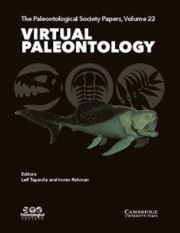No CrossRef data available.
Article contents
The Decline of Reason?
Published online by Cambridge University Press: 21 July 2017
Extract
We've arranged a global civilization in which most crucial elements profoundly depend on science and technology. We have also arranged things so that almost no one understands science and technology. This is a prescription for disaster.
Carl Sagan, The Demon-Haunted World, 1996.
- Type
- Research Article
- Information
- The Paleontological Society Papers , Volume 2: Learning from the Fossil Record , October 1996 , pp. 3 - 10
- Copyright
- Copyright © 1996 by The Paleontological Society
References
Some Good Sources on Science and Anti-Science
Lett, J.
1990. A field guide to critical thinking. Skeptical Inquirer
14:153–160. A nice set of guidelines (modified in Table 3, herein), based on the scientific method, for evaluating any claim, whether it be scientific or paranormal.Google Scholar
NATIONAL SCIENCE BOARD. 1996. Science and Engineering Indicators–1996. NSB 96–21. U. S. Government Printing Office, Washington, D. C.
This report details the status of science and engineering in the US, including science education from K to graduate school, the work force, industrial and academic research and development, and public attitudes toward science. It is interesting, yet depressing, reading.Google Scholar
Roe, Anne. 1952. The Making of a Scientist. Dodd, Mead and Co., New York. 244 p. (paperback). Dr. Roe, wife of one of the most influential paleontologists and evolutionary biologists of the 20th Century George Gaylord Simpson and a psychologist herself, presents a fascinating study of why 64 eminent scientists chose their fields.
Google Scholar
Sagan, Carl. 1996. The Demon-Haunted World: Science as a Candle in the Dark. Random House, New York. 457 p. Sagan, perhaps science's foremost spokesperson, reveals the pleasures and benefits of science and the fallacies of pseudoscience, anti-science and other such nonsense.
Google Scholar
SKEPTICAL INQUIRER: The Magazine for Science and Reason. Committee for the Scientific Investigation of Claims of the Paranormal, Box 703, Amherst, NY 14226-0703. A good source of critical studies of paranormal and fringe science claims, as well as useful information on science and reason in examining important issues.Google Scholar




